Photo: Mason Allen
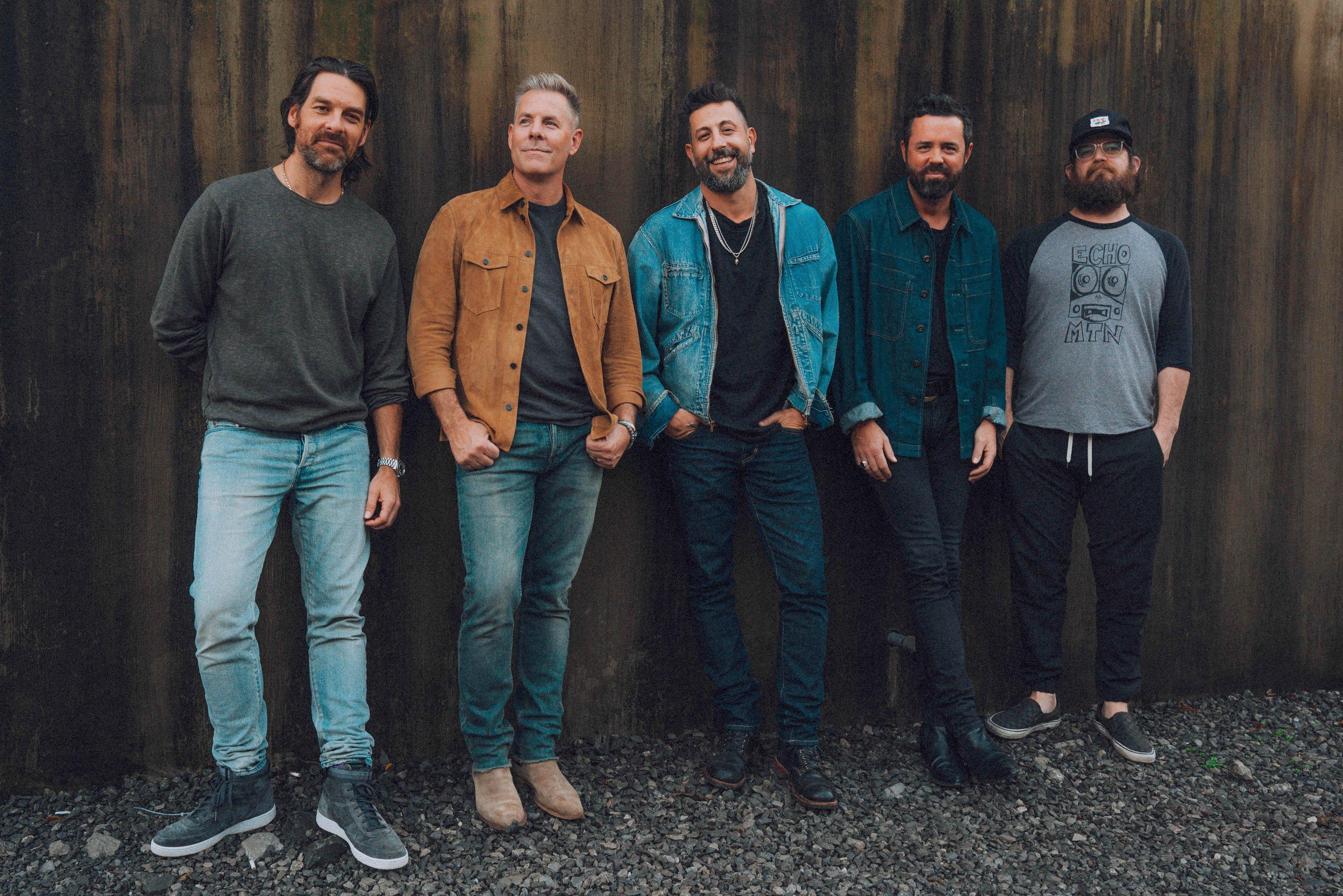
interview
Behind Old Dominion's No. 1 Hits: How Kenny Chesney, Food Poisoning & "Ballsy" Moves Created Their Funniest Memories
As Old Dominion's latest single "Memory Lane" continues climbing the charts, the country group's Matthew Ramsey and Trevor Rosen look back on the memorable moments behind hits like "Break Up With Him" and "One Man Band."
Old Dominion never intended to be a band. Initially a friend group of aspiring songwriters in Nashville, they formed a collective in 2007 to showcase their individual songs. More than 15 years later, they've become one of country's biggest groups.
With seven No. 1s on Billboard's Country Airplay chart, Old Dominion have proven to have a knack for writing catchy songs. But they don't need stats to show their skill — whether it's the clever juxtapositions of "Written in the Sand" or the bittersweet metaphors of their most recent single "Memory Lane," their songwriting is as charming as it is thought-provoking. Match that with their earworm melodies, and it's almost hard to believe they never thought "this band thing" would take off.
"It took us a while to have confidence in what we were doing, and to make our priority when we sit down to write music [that] we're writing for us," frontman Matthew Ramsey says. "We knew what we were trying to achieve, but then our fans sort of showed us what we are — and that is, a joyous, very genuine thing. And that's what's grown."
The name of their 2023 tour embodies that sentiment: No Bad Vibes. That's also indicative of the energy Ramsey and bandmate Trevor Rosen brought when they sat down with GRAMMY.com, reflecting on their biggest songs with nothing but joy.
Just before Old Dominion released their latest project, the eight track EP Memory Lane — which Rosen teases "is part of a bigger project coming pretty soon" — the pair shared the hilarious and heartfelt memories behind the band's most beloved songs.
"Break Up with Him" (2015)
Rosen: "Break Up With Him" was our first No. 1, it brought us to the proverbial dance. A vivid memory of writing that song: We were playing at a Kohl's company picnic for like 500 bucks in the middle of, what was it, Ohio?
Ramsey: They had hired us to play a, like, lunchtime company picnic. [Laughs.]
Rosen: Most of the people there didn't know who we were or particularly care, but the memorable part of this day was, we were soundchecking, and just started noodling that groove to "Break Up With Him." We just thought it sounded cool, and I think I held my phone up and recorded a snippet of it.
We were driving in the little Ford Econoline van to get to the next gig that night, and it seemed like everyone was asleep. I was on the back bench not yet asleep, and I saw Matt's head pop up over the bench to see if I was awake. He was like, "I was thinking about that song we started writing today… I had this idea for a one-sided phone conversation."
For the next hour, maybe, he just threw out [ideas] like, "Hey, girl, what's up?" And we're whispering because we don't want to wake anybody else in the van up, and we're just like, cracking each other up with these little one-liners. I think we had all the verses and the hook written by the time we got to the next town.
Ramsey: We were at the musicians union in Nashville kind of working that song out, playing it through, and I remember we called Shane [McAnally], and we're like, "You have to come hear this song." We played it for him and he was just like, "What is this?"
At that point, we were very much active in the songwriting world. We were still getting cuts and having hits on the radio with other people, and pitching essentially everything we wrote. That was the first song that we were like, "Don't let anybody hear this. This one is ours."
Rosen: That helped define that sort of clever, sarcastic fun side of us that maybe we hadn't shown as much up to that point — we had shown more of the rock side, and the good songwriting side. I think we realized right away, "Oh, we can shock people into listening to us and show off that side of us." I think it helped define what we were as a band.
"Song for Another Time" (2016)
Ramsey: The moment that stands out for me is when we first played it at a soundcheck as a band. It was written on the road, and we pitched it to Kenny [Chesney], and Kenny said, "This is great, but you should record it."
Rosen: It was [maybe] a polite way to turn the song down. [Laughs.]
Ramsey: That was the beginning of the level of care that he has for us, and the influence he has on us. He is invested in our career, and that was the first moment that he sort of showed that.
We hadn't even thought of ["Song For Another Time"] in that light yet, because in our minds, we were done recording the album. So there was no sense in even considering it yet, because at that point, who knows what's gonna happen with our career.
We were soundchecking to a big empty stadium and we thought, Well, if [Kenny] says we should record it, let's just try and play it and see what it feels like. And, you know, something about a giant PA system and a stadium — the light bulbs were going off. We came off the stage and back onto the bus after the soundcheck, and called our manager and said, "Hey, we need to fly home and record one more song." We flew home, we recorded that one song, and then we flew back out onto tour.
Rosen: The fact that we were able to squeeze that in was kind of crazy. I also remember, we were in Seattle when it went No. 1. We were in this little bar called The Hideout, Matthew and I and our tour manager at the time, Tommy Garris. They had this cool thing where if you order a drink you got a Polaroid picture with it. So we ordered a drink, and they took a Polaroid of us holding up the No. 1 sign.
"No Such Thing as a Broken Heart" (2017)
Ramsey: That song has become one our favorite moments in the set, just because it's such a different feel. And that was one of the first times where we felt comfortable showing our hearts a little bit, and not just trying to craft a plain ol' hit song. It kind of stemmed from our discussions after the Pulse shooting in Orlando.
That song is always going to be relevant. We're always going to have these opportunities to use that song for good. And I always say before we play it, that's the song that we bring to sing with you, not to you. Because I truly feel like there's power in those words.
We were playing in Virginia Beach, and there was again, unfortunately, another shooting that day, just miles down the road, some police officers were killed. So we went on stage that night, and it was kind of a heavy vibe. I spoke to the crowd and said, "This is what this is for. This is why we felt like writing the song, and so here we are. Together, let's try and create some sort of healing if we can."
When the song is over, we always sing that chorus again with the crowd as loud as possible, and it always is this magical moment — you can just feel everybody take a breath.
Rosen: On the lighter side, we played it on the ACM Awards one year. Before we went on, Matthew was joking around, and instead of [singing] "You can't keep the ground from shaking," he was like, [sings] "You can't keep Luke Bryan from shaking." Luke was the host, and he heard it, and he goes — what did he say?
Ramsey: He said, "You don't have a hair on your ass if you don't say that on the TV show." So we did.
After we walked off stage, he was backstage waiting on us, and he was like a kid that had just won the Little League World Series.
"Written in the Sand" (2017)
Rosen: It's one of my favorite songs that we've put out. I remember the day we wrote it. You had written down "stars or the sand." It was like, "That's a really cool juxtaposition." It was fun to sit there and try to come up with the metaphors and be our clever selves.
For some reason when we first recorded that, I wasn't thinking, "This is a single." And the first time we had a good mix of it pulled up in the studio, I remember the moment sitting on the couch and listening going, Wait a second, this is a giant hit song.
Ramsey: I like where we are right now with that song. Because in the live element, we've taken it and expanded it quite a bit. Up until now, in this tour, I don't think we've really showcased our musicianship, and shown what a true band we are. We picked that song to start doing that with, so now there's an extended version, and we just kind of let Brad do his thing, show his capabilities on the guitar. There's a lot of really cool full-band moments in it.
This song kind of defined our relationship with our label, too. Because when we were making the first record, there was no label head — the person who was there when we got signed ended up getting fired. So we made our whole first album just kind of on our own. So when it came time to make the second album, we just operated like we did on the first one. We didn't tell anybody anything, we didn't send any songs.
They sort of knew what we were doing, but that song was written sort of late in the game, and they started seeing the title pop up on the cut list, and they started asking us, "We haven't approved this song, what's going on?" We just kept going, "You'll hear it when it's done, it's great." We turned it in, and they were like, "Oh, wow, that is great." I think they gained a lot of trust in us. And now, they just leave us alone. [Laughs.]
"Hotel Key" (2018)
Ramsey: When we were on tour with [Kenny] this past summer, a lot of his crew, for the entire year, unbeknownst to us — people like to throw hotel keys up on the stage, and they collected all the hotel keys for the entire tour without telling us. Then on the last show, they handed them out to the crowd, and they were like, "When the second chorus starts, everybody throw 'em." So we hit the second chorus and it just starts raining hotel keys.
Lots of times people hold 'em up and I'll grab 'em. Sometimes I'll just shove them in my pocket or whatever, and there was one time I did that, and we finished the show, and we were walking off stage, and one of our crew members comes running up to me. He was like, "Hey, that person you took their hotel key, they accidentally handed you their driver's license." I looked in my pocket, and sure enough, I had this driver's license.
I [also] remember a funny story about the video. The director got food poisoning during filming. The poor guy was, between takes, going around the side of the bus and like, losing it, and then coming back and finishing. After we wrapped up the shooting of the video — which was probably like, 2:30 in the morning — he had to go to the ER to get fluid because he was throwing up the entire time.
Rosen: That's committing to the bit.
"Make It Sweet" (2018)
Ramsey: This was, quite frankly, born out of us being unprepared. We had booked studio time, but we hadn't talked about what we wanted to record, we hadn't shared songs with each other. We had no clue what direction we wanted to go for that third album — we always have ideas, but to go into the studio with no song is pretty ballsy.
Rosen: When you book a studio, usually, it's expensive, so you go in with songs and you know what you're going to do. We booked the studio with no plan. So it's a little bit more pressure, because if you don't end up writing a good song that day, then you just wasted a lot of money. But we wrote ["Make It Sweet"] and recorded it all right there in the same day.
Ramsey: I had some notes in my phone. You've seen you've seen the, like, T-shirts and bumper stickers and stuff that say, "Take the trip," or "Eat the cake," you know? It was that kind of idea that I had — and I did have "Life is short, make it sweet" written down in that [note].
We were sort of playing, and I remember, off the top of my head, just saying, "I know it's a drag, I know it's a grind" — I was just sort of going. And I looked over at Brad, and Brad goes, "Keep going! Yes, whatever you're doing, do it more!"
Rosen: The other memorable thing about that song was filming the video. We filmed it in Malibu and had an expensive location on this hillside overlooking the ocean. It was supposed to be this beautiful view, but this morning [there] was just a ton of fog — I mean, you couldn't see two feet in front of your face. At one point, you could tell everyone was starting to get a little uptight. It seemed like [it] might be a total bust.
After a couple hours, it finally started to settle, and it settled a little bit below the hill, and it was like we were in the clouds. It turned out to be something you could never do on purpose. It was just one of the most memorable days and most beautiful shots.
Ramsey: We still have [the guitar I throw in the video], and amazingly it was not broken. They went down the hill and got it, and it was basically in tune still!
It was a free guitar that they had sent us for the video, so we were like, "Okay, let's just toss it." We've used it since then — we were like, "Wow, that thing's tough!"
"One Man Band" (2019)
Ramsey: That's a career song for us. We just never saw that song [getting] as big as it got. Before it was a single, we played it in Chicago — it was our first arena show. We decided to play that song, and it was such a huge response. You play new songs all the time, and you get a good enough response, usually. But we played that song, and it was very obvious that that needed to be the next single.
Rosen: They were captive, first of all — it was like, you're playing a ballad, and they're all just hanging on every word. And then when you hit the end of the chorus, everyone cheers. And it's like, that just doesn't happen usually.
Ramsey: The video of that one was never supposed to be the video. It was just our videographer, Mason Allen, was filming rehearsal that day. We were just practicing, and he caught a bunch of footage of it, and we put it up because we needed something out there while we figured out what the video was going to be. But the views were just going through the roof, and we were like, "Why would we mess with that? It seems to be doing just fine!" And it ends up getting nominated for Video Of The Year [at the 2020 Academy of Country Music Awards], when it was just rehearsal.
Rosen: We won the [ACM] award that year for Song Of The Year. That was a big award for us, because we started out as songwriters first.
Ramsey: [When we played] Red Rocks [Amphitheatre in Colorado], ["I'll Be" singer] Edwin McCain was there. He was texting me videos a couple days after, and he was like, "What an insane song, and what an insane thing." He's got one of the biggest songs ever, and he's like, in awe of that song. He was even going like, "Man, f— you guys for writing that song." [Laughs.]
"Memory Lane" (2023)
Ramsey: The thing I'm loving right now is the live performance of that song. It's a similar thing to "One Man Band" in that, from the moment it was out and we added it to the set, we start it and as soon as the first line hits, it's the biggest, like, wall of sound of people singing that first line.
I remember the first time it happened, I was like Oh, damn, we got something here. This does not happen. It was way early in the life of that song for that to be happening, so I started to get real confident in the fact that we had a really great song.
Rosen: That song reminded me to follow what we like the best. We have a lot of other songs that we've recorded that I felt like were hits, and there were a couple that I thought maybe were safer choices, but I knew "Memory Lane" was the first one I wanted to listen to when I got in the car. And you don't always pick that one as the single, so I was glad that we went with that one. If we love it, we've been right — that's usually served us well, that our fans and people in general like it.
"I Should Have Married You" (2023)
Ramsey: We're just so lucky, because people like what we do. It's a really fun time in our careers where we're like, Whatever, let's play the new one, you know people are gonna like it!
A couple of years ago, we were in Canada on a day off, and I just started making this little beat, and recorded that piano progression, and then I had it saved forever. I was constantly listening to it and trying to come up with some sort of idea for it, and I couldn't ever land on anything.
I brought it up in the studio, and everybody loves the feel of it. We started going through the title, and I had this idea: sort of a mad song, that was more like, "You would have made me look like an idiot, I would have married you." And that didn't really feel right until somebody said, "What if it was I should have married you?' and everybody's like, 'Oh, what is that?'"
"Some Horses" (2023)
Ramsey: That one's the only song that we've ever recorded that we didn't write. We weren't searching for songs, it just presented itself at the right time and we felt the need to record it.
Shane and Matt Jenkins are both writers on that song, and those guys were part of our group before any of us had anything. We were all friends, we were all broke, we were all trying to figure out how to do this songwriting thing, and we played just countless writer's rounds, trading songs with each other. And that song, over a decade ago, was one that they would play a lot, and we just loved from the first time we heard it.
Trevor and I were talking about the old days and songs that we loved [when] we were on the bus, and we texted Matt Jenkins, "Do you have the demo for 'Some Horses'?" We weren't even thinking about recording it, we just wanted to be fans of it again.
The way they wrote it, it was in the third person and it was about a woman — "she races, she runs." And then one morning, I was at home before I went to the studio, and I picked up my guitar and started playing it. But I changed it all to first person, and just identified with it very deeply.
Shane was in the studio that day, and I was like, "Hey, let me just run something by you guys" — I hadn't talked to Shane about it or anything. I started playing it, and he was, in his very Shane way, was like, "What are you doing right now? Stop it!" He wasn't expecting it, and it's an emotional thing. And I think he identified with it, too, in the way that I had changed the words.
It's an outside song, but we're so close to those guys, and they're so ingrained in the story of this band, that it doesn't really feel like an outside song. Those are our dear, dear friends, and they've been part of this journey the entire time. The creation of this band, and the sound that we create, and the songs that we put out, their fingerprints are all over it. So this was just a different way that their fingerprints are on it.
Meet Bailey Zimmerman, Country's Biggest New Star Who Still Can't Believe He's Famous
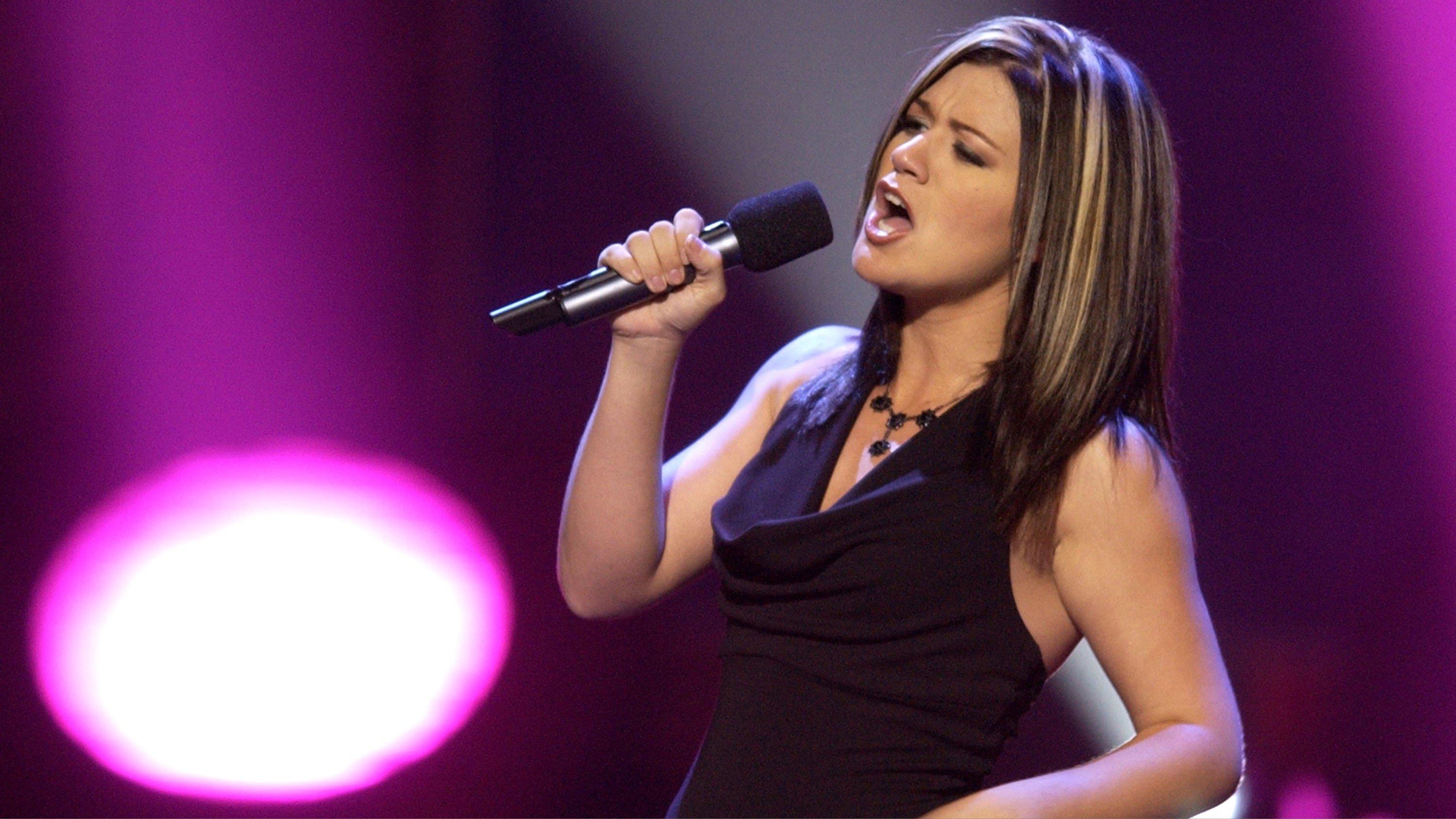
Photo: Steve Granitz / GettyImages
news
On This Day In Music: "American Idol" Premieres On Fox Network
For decades, "American Idol" has been instrumental in discovering some of music’s biggest names and pioneering the reality TV contest genre. As the show enters its 22nd run, here’s a look at how it has become an iconic household staple across the country.
For countless Americans, "American Idol" is intertwined with core memories as a show that had families eagerly glued to their TVs twice a week. It brought generations together, creating moments of both suspense and excitement that are still remembered today, as the show continues to run in its 22nd season.
Created by visionary entrepreneur Simon Fuller, "American Idol" premiered on June 11, 2002, as a fresh spin-off of the British program "Pop Idol." It revolutionized how Americans engaged with reality TV through its interactive, viewer-driven voting system, which encouraged audience participation in the success of their favorite contestants. The show also offered viewers a glimpse into contestants' candid backstories and personal journeys, anchoring emotional investment and skyrocketing the show's popularity.
The show's debut season featured a dynamic trio of judges: singer Paula Abdul, TV personality Simon Cowell, and producer Randy Jackson. Their contrasting personalities brewed a chemistry as captivating as the hopeful performances. Abdul’s warmth, Cowell's blunt wit, and Jackson’s humor added extra layers of entertainment, making the twice a week broadcasts a must-watch.
The first season of "American Idol" also unforgettably introduced the country to Kelly Clarkson. Since her debut — with a heart-tugging backstory about being the average girl-next-door with big dreams — Clarkson has gone on to tour the world, host her own TV talk show, and secured her spot as one of music’s most beloved talents.
"I had dreams since I was a little girl that I wanted to be on the GRAMMYs, or some award show and sing on there," Clarkson mentioned in her pre-audition interview. Flash forward 22 years, the pop singer has accumulated 17 GRAMMY nominations and three wins, propelled by a powerful vocal gift.
Other artists who launched their careers from the show's platform include Jordin Sparks, Carrie Underwood, Adam Lambert, and Jennifer Hudson, who each serve as testament to the show’s impact in music.
"American Idol" has not only opened our eyes to some of our favorite musicians, but it also has given us some of our favorite pop culture moments.
A video that frequently resurfaces on social media captures a memorable moment between Katy Perry and contestant Noah Davis, where they bond over the slang term 'wig'.
"No, it’s not your language. It’s just for us," Perry joked to her fellow judges, Lionel Richie and Luke Bryan, when they questioned the term’s meaning.
After two decades on air, "American Idol" has etched a lasting legacy in pop culture. It has paved the way for other reality TV music shows and created lasting memories for music fans along the way.
“The show transcends age, gender, ethnicity, everything,” Underwood told Billboard in 2005.
Explore More History-Making Moments In Music
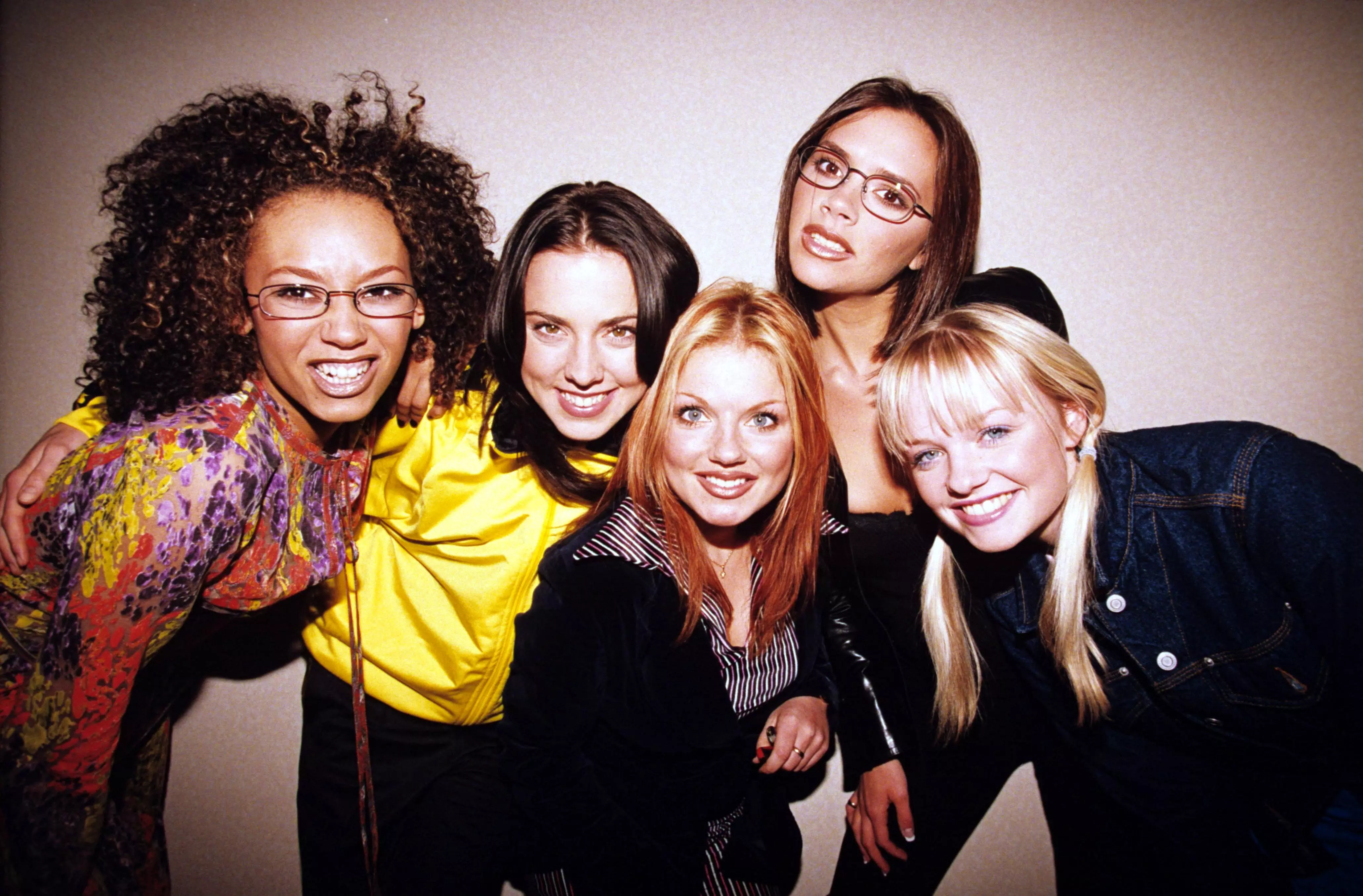
On This Day In Music: Spice Girls Release "Wannabe," Their Iconic Debut Single
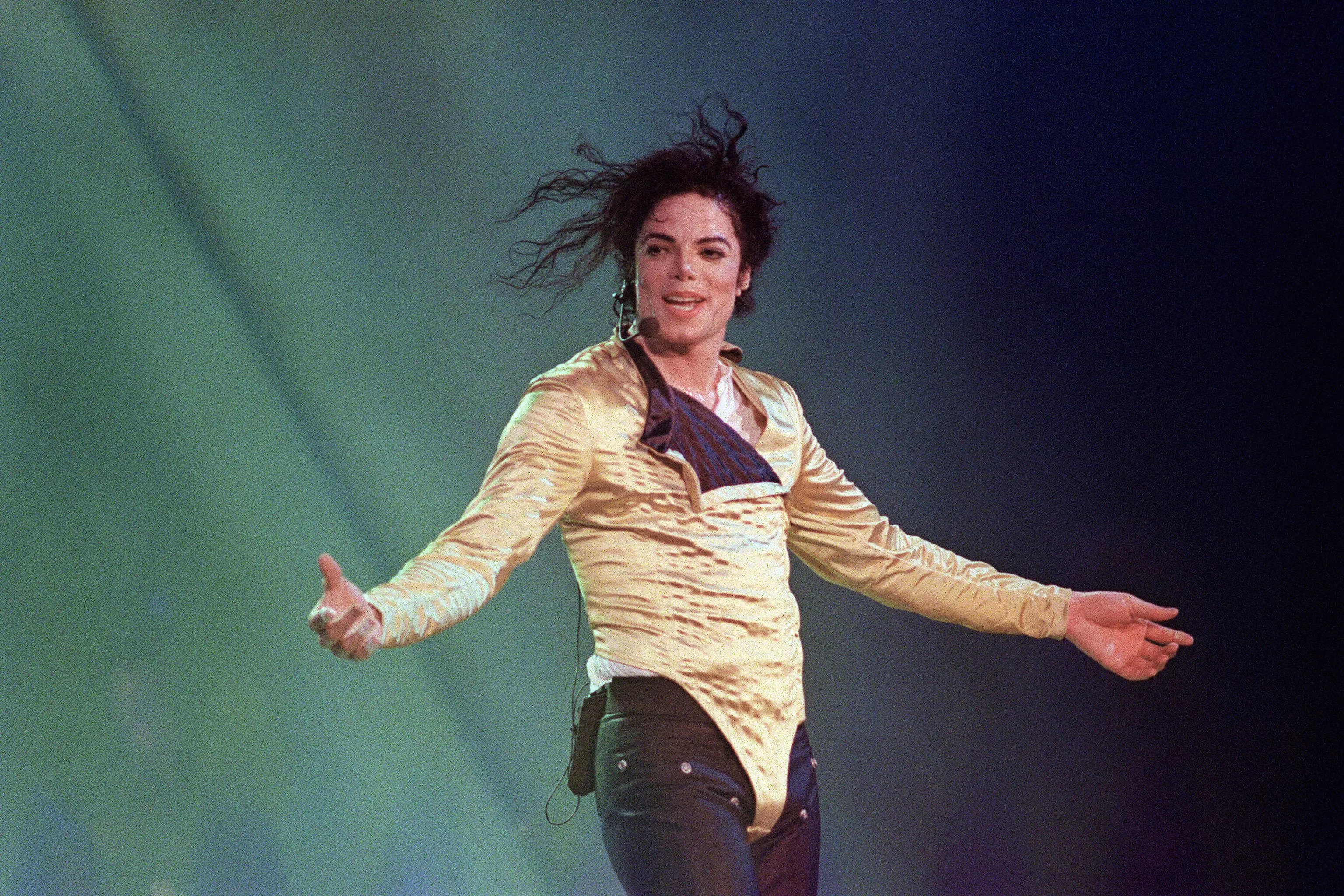
On This Day In Music: Michael Jackson Passes Away In Los Angeles At Age 50
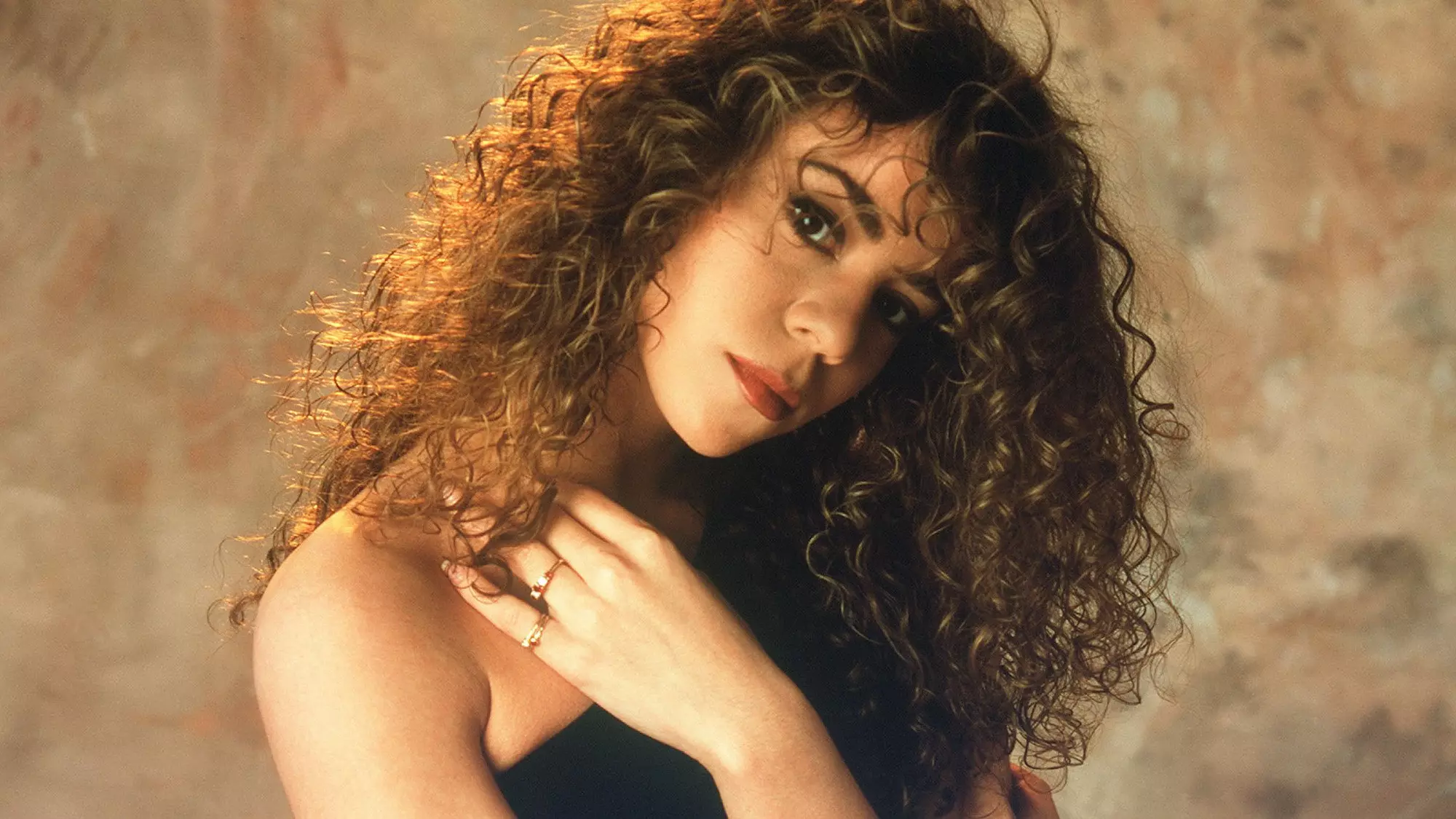
On This Day In Music: Mariah Carey Releases Her Self-Titled Debut Album
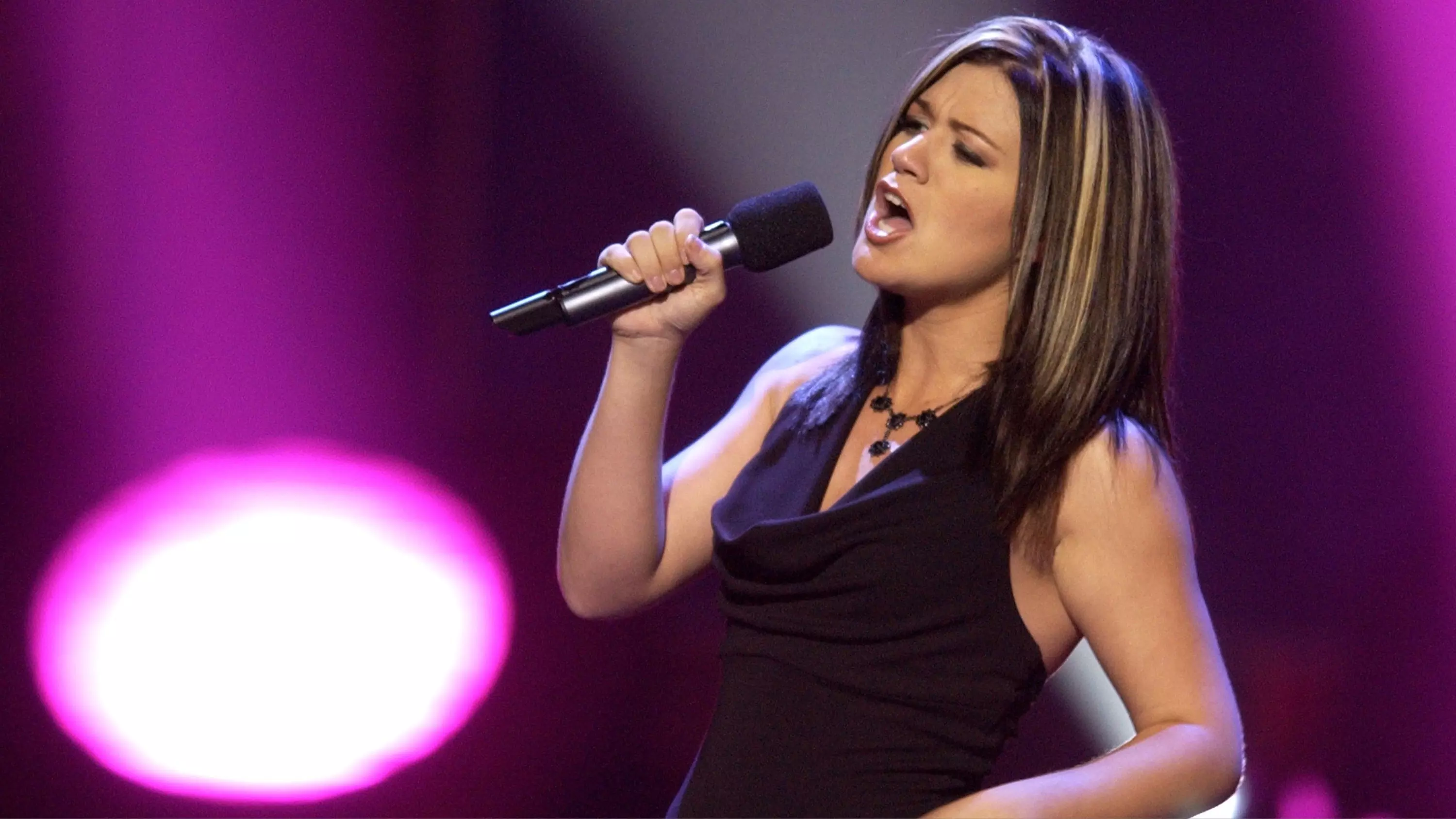
On This Day In Music: "American Idol" Premieres On Fox Network
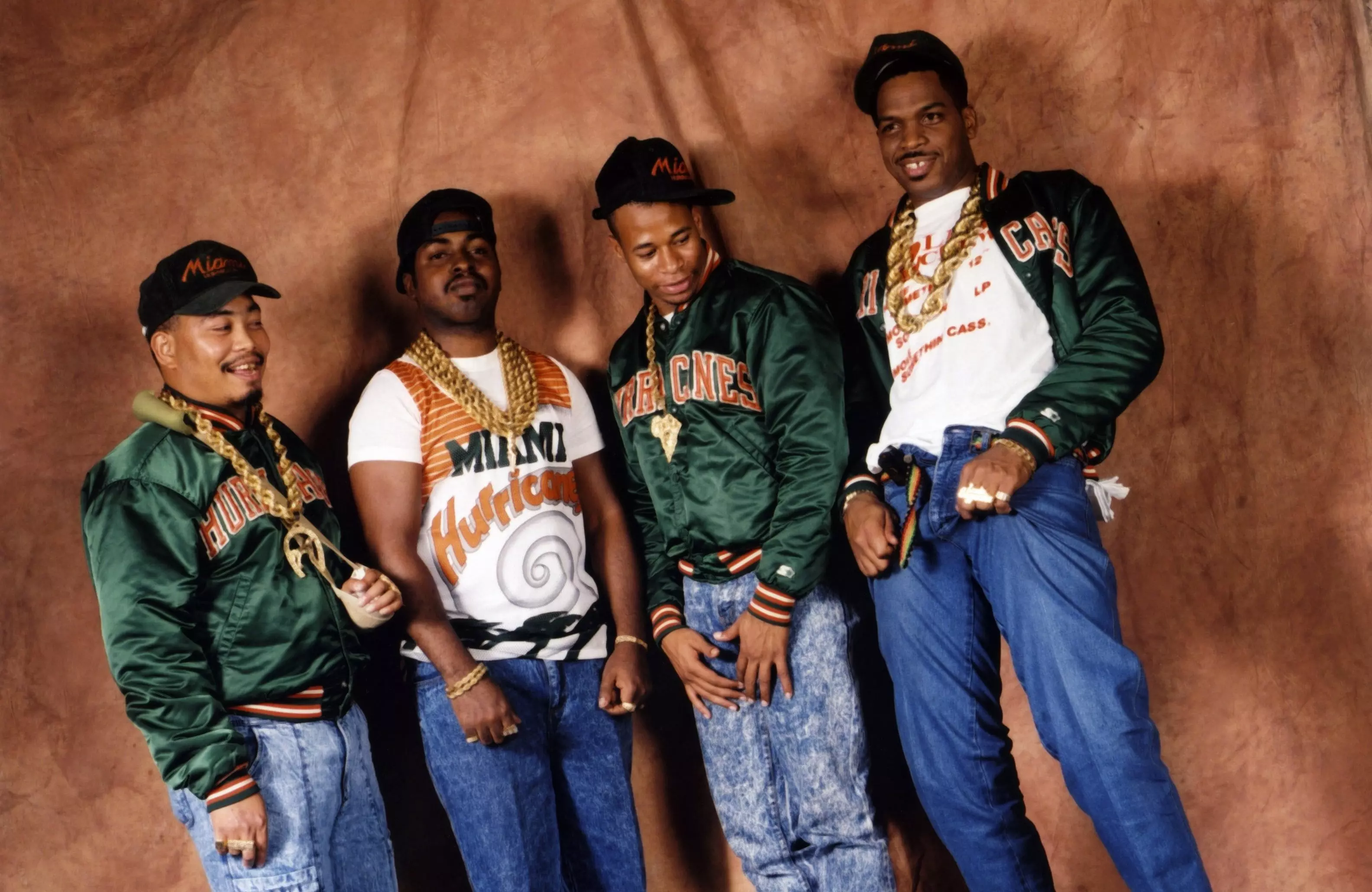
On This Day In Music: 2 Live Crew's 'As Nasty As They Wanna Be' Becomes First Album Declared Legally Obscene, Anticipates First Amendment Cases
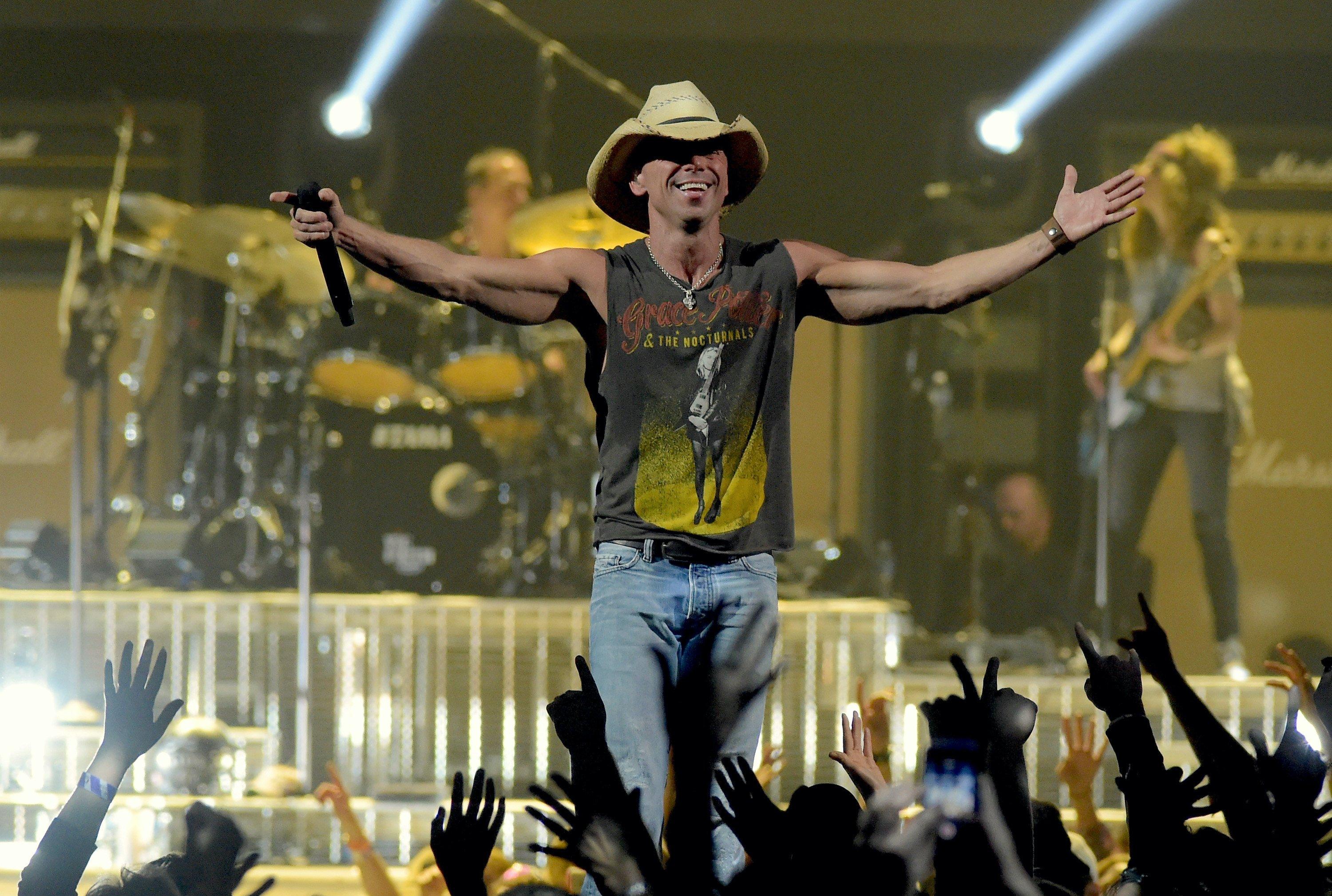
Photo: Rick Diamond for Getty Images
interview
Kenny Chesney Reflects On His Favorite Tour Moments & Teases Why Upcoming Here And Now Tour Is "A New Way Of Being Ready To Rock"
On April 23, Kenny Chesney will launch his 19th tour — the Here And Now Tour — at Raymond James Stadium in Tampa, Fla. The veteran country star looks back on the touring legacy he's built and details what makes his shows so special.
"I can't believe how long it's been since I felt the energy of @noshoesnation in my veins," Kenny Chesney captioned a social media post on April 19. Like many touring musicians, the country star has been off the road since the end of May 2019. But for someone like Chesney, that is a remarkably long time.
Since 1998, Chesney has toured 18 times, never having more than two years in between treks — and he's only done that twice. His extensive touring schedule has become the primary element of his career, making Chesney one of country music's leading road warriors.
Chesney kicks off his 19th tour in Tampa on April 23. Titled the Here and Now Tour — named after his (fittingly) 19th album — the trek has the singer hitting 21 stadiums and 20 amphitheaters across the United States. The roster is as stacked as the schedule: Fellow country hitmakers Dan + Shay, Old Dominion and Carly Pearce will support at the stadium shows (only Pearce will open at the amphitheaters).
Upon the tour's announcement in November, Pearce and Dan + Shay's reactions to being invited out with Chesney showed just how major his tours are. Pearce called it a "bucket list dream,"while Dan + Shay said they've been attending Chesney's tours as fans for more than a decade. "Look for us in the crowd every night singing every word to every song," they wrote.
With a record 31 No. 1s on Billboard's Country Airplay chart, it's no surprise Chesney's tours are so appealing to his fans (dubbed No Shoes Nation, as he referenced in his post) and his openers. And after nearly three years away from the stage, songs like "Beer In Mexico" and "Summertime" may be more impactful than they've ever been.
Ahead of the first Here and Now Tour date, Chesney took a break from rehearsals to chat with GRAMMY.com via email. He dropped some hints about this year's tour and shared some of his most cherished memories — but perhaps most notably, Chesney made it very clear that he's not letting another three years pass him by.
You've said "I was shocked to see how much more these songs could be" because of the power of this year's band. As you've been rehearsing, which songs feel the most elevated? And what's making them more impactful?
If you've been to one of my shows, you know what the power of the band has always been. People are swept up and "in" it. I've been really blessed with my players.
But when you change a few key people, everyone comes to the bandstand with a different charge, a different chemistry. We are all really listening to the songs, hearing them with fresh ears and understanding maybe things we've not heard before.
And after three years, the joy of being on that stage? Playing together? It's the best feeling in the world! We never take it for granted, that energy when we hit the stage. But when you step away for this long, you really feel what's missing.
2019's Songs for the Saints Tour was exclusively in arenas. What makes stadium shows particularly special?
All the shows are special. When we did the Songs for the Saints Tour, it was about recognizing those fans who don't live in stadium markets, who have to travel. I grew up outside Knoxville; I was one of those kids, and I don't forget that stuff. To me, any stage I get to walk out on? It's the best possible show I could do anywhere — and that's what we try to do.
Stadiums, though, have this massive energy. They're built for football games, fans who get loud! That's what they're for, and if you do your set list right, to have all those people together, well, we can lift each other up in ways you can't anywhere else. There's nothing like it: the sound, the staging, the momentum.
When you're really rocking, you can do three miles up there. People don't realize that [a stadium] stage is 220 feet wide, and then you have the strut off the front of it. We cover a lot of ground, see a lot of smiling faces. That's a big part of it: the faces, the voices singing. It's massive to experience.
A tour press release said "With some classics coming off the set list, Chesney's worked up several songs to possibly rotate in." What are some of the classics that will never leave your set list and why?
Never say never. I think that's a dangerous precedent. And the list can change from night to night, especially with the way the lighting's being done this year.
But what's amazing to me is, even taking some songs out of the basic set list, how many hits remain. I think Billboard has me at 30 or 31 No. 1s, the most on their current chart, and I've had almost as many songs land at No. 2. It's an absolute impossibility that they're all going to be in there. Some songs — and I can think of one [that] people will be surprised we're not doing — can be rested for a tour or two.
This year marks 20 years of No Shoes, No Shirt, No Problems, which spawned the song of the same name that has now become one of your set staples. What does that song mean to you, in terms of both a career song and a live song?
Being free-spirited, carefree. Ocean life. Letting go of everything that stresses you. Sometimes you can't do anything about it, so let go.
As a career song, I think it's really the album. We'd been building towards or "collecting" the things that really mattered to me, that spoke to my way of living — and finally, there was an album that was absolutely me in that sense. We wanted hits — and "Young" really launched us hard, defined who I was making records for, "The Good Stuff" won the ACM Single of the Year — but it was also this larger picture.
What people didn't realize back then was how many young people were just like I was. I sang about our life, our escape, our dreams — and it deepened the connection. The fans knew I not only saw them; I was just like them. That authenticity, that bond matters.
When we sing it live, that's a moment where we all really see each other, let go. Every night, I tell No Shoes Nation, "Whatever problems you've got, tonight, just for this evening, leave them out there and come be with us." It's powerful.
Speaking of No Shoes Nation, "No Shoes, No Shirt, No Problem" inspired that name. You officially declared that name for your fans at Gillette Stadium 10 years ago this year. In the 10 years since, how have you seen No Shoes Nation come to life?
No Shoes Nation came to life long before it was named at Gillette Stadium, by my good friend and tour promoter Louis Messina. It came to life in the tailgates in the fields around Coral Sky Amphitheater in West Palm Beach; the Tiki Bars on flatbed trailers people would roll into the parking lots in Columbus, Ohio or around Soldier Field in Chicago or Texas Stadium in Dallas; the people driving tractors to the shows or making friends with the people hanging in the same places.
It was well-established before we ever thought to name it. But they are a country without borders that inspires me every day, especially during these years of so much uncertainty. Their passion for life and music is amazing. They are some of the best people in the world, they look after each other, and they really care. I can't wait to see all those faces this year.
What are some of your most memorable moments from touring — whether they were on or off stage?
That's like asking a parent "which child do you like best." I mean, how do you pick?
I remember a young woman getting on stage in a ball cap. I was going to give her the helmet I give someone every night, and she was shaking her head no, holding her hat on. Then I realized: she's got cancer; she's doing chemo. I got it, but I wanted to give her just as much heart back — and all I could think to do was pull off my hat, too.
So, there we were, with our hats off, no hair, smiling into each other's eyes. She was so beautiful, and so in the moment. I mean, you never forget that. I learned another lesson about the ways we support and live and inspire each other.
One year in Texas, we'd been watching the weather. Those fans are so alive, so at the moment, we didn't want to call the show. The weather report seemed okay. Then the biggest storm rolled in, just drenching us. It was terrible, and we made the decision to call it.
I walked out, wanting to keep people calm and even. I respect my audience, but it's a lot of people. Then I sang "Something Sexy About The Rain" from Be As You Are, my first island record. There's video of it. Talk about perfection in an absolute train wreck moment. But that's the thing about No Shoes Nation — they're so in the moment, too, they just sailed through it with us, went to their cars and got home safe.
Along with an amplified sound, what else is going to feel different about this year's stadium tour?
Just being out there again. We've been in rehearsals, and even more than how much I've missed the road and my road family, when we hear No Shoes Nation start to roar — the way our hearts pound is going to be a new way of being ready to rock.
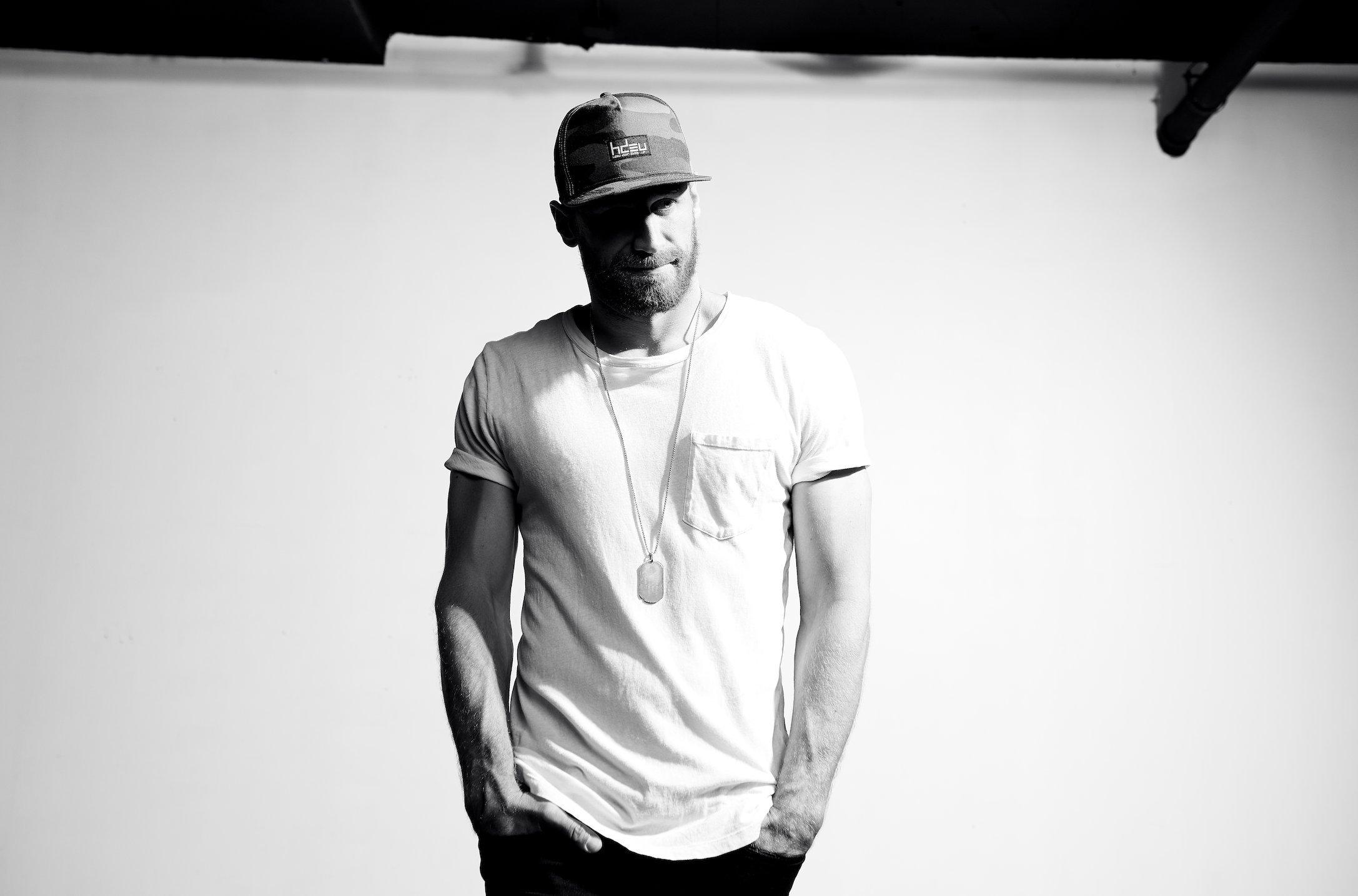
Chase Rice
Photo: Jason Myers
news
Chase Rice On His Brotherhood With Florida Georgia Line, Being Unafraid Of "Bro-Country" And Finishing 'The Album'
Following a string of hits throughout the 2010s, country singer/songwriter Chase Rice has finally capped off his three-part 'The Album' project. And getting to the finish line meant embracing himself for who he is
When people make the delineation between "real country" and "pop country," which clichés do they lob at the oft-maligned version? They might cite trucks, dogs and America—or the mere act of sitting around a firepit, quaffing brews and discussing the man upstairs. Enter Chase Rice, who does not care even a little bit about what the critics think—or subverting their expectations.
For those opposed to such themes, one of his latest tunes is a provocation: "Drinkin' Beer. Talkin' God, Amen." "The biggest thing for me with that is, that's my life. If you've got a problem with it, go listen to somebody else's music," Rice tells GRAMMY.com over Zoom from his Nashville home. "That's literally what I did over the last year: Sat around a fire and drank a piss-load of beer."
And if even the most ardent "real country" gatekeeper doesn't at least mumble the chorus under their breath for the rest of the day, they must not know a hook when they hear one.
<style>.embed-container { position: relative; padding-bottom: 56.25%; height: 0; overflow: hidden; max-width: 100%; } .embed-container iframe, .embed-container object, .embed-container embed { position: absolute; top: 0; left: 0; width: 100%; height: 100%; }</style><div class='embed-container'><iframe src='https://www.youtube.com/embed//wpS2oX9ASLc' frameborder='0' allowfullscreen></iframe></div>
"Drinkin' Beer. Talkin' God, Amen." is part of the bluntly titled The Album, Rice's three-part smorgasbord that has trickled onto streaming services over the past year and change. (Part I arrived in January; Part II joined it mid-year.) The final third—nicknamed Part III—is out now and marks the completion of this boozy, earworm-filled triptych, which also boasts bangers like "Forever to Go" and "Down Home Runs Deep."
Now that The Album is done and Rice can dust off his hands, what's to come? Those would be the tunes Rice wrote during quarantine—and they promise to dig even deeper into his psyche. No matter what the results will be, though, know this: Rice will be himself, and not what anyone wishes he was.
GRAMMY.com caught up with Rice to discuss his long history with collaborators the Florida Georgia Line, sloughing off the "bro-country" conversation and what's next as gigs rev up again.
This interview has been edited and condensed for clarity.
Tell me how you teamed up with Florida Georgia Line. What's your history with those guys?
I grew up playing little league baseball and soccer with Brian [Kelley], so we grew up in Daytona Beach, Florida, together. He's been a huge, huge part of my journey, to be honest.
I moved to Nashville and lived in a house with him and Tyler [Hubbard]. But even before I moved to Nashville, he was playing guitar; I learned to play guitar during that time. [I was] probably in high school. He moved to Nashville, and the first time I ever visited, he said, "Yeah, you're gonna meet my buddy Tyler later. We're kind of starting this duo called Florida Georgia Line." This is probably back in 2009. The first time I ever visited, though, we played around at a place called Hotel Indigo. I was in the middle, Tyler was at my right and Brian was at my left. That was the first time I was like, "Damn, y'all are dialed." I had never even sung into a microphone before, so I was the rookie. Then, I moved to Nashville in 2010, we wrote "Cruise" probably in 2011, and it was off to the races for me as a musician, me as a writer.
Then, we went our separate ways because we wrote a ton of songs together, but when that happened, it was just like, "Damn. They're flying." They skyrocketed. Then, I was left to go figure out who I was as a writer and how I could get better at writing songs without them, which was huge.
Ten years later, here we are, back together. It was kind of Brian's idea. He heard the song on Instagram and was like, "Hey man, this is badass. Let's go [do it] like the old days. Let's produce it together and just have some fun doing music again." [Then,] Brian texted me one night and was like, "Hey man, I'll tell you how we make this special." It [would be] a CRFGL collab. As soon as he said that, I was like, "Yep, perfect."
It's interesting how you guys took different trajectories. Before you came into your own, how did you know they had something special going musically?
I can tell you right away: That first time at Hotel Indigo, I was like, "Man, these guys are good." They had something special. They had a connection. They worked well together. Their voices were great together. But the songs they were writing were them. Whether they were hits or not back then, they were them. They owned who they were.
The day we wrote "Cruise," I remember Brian being like, "Man, we were writing for meals all the time." On the day we wrote that, I was like, "Man, this is huge for FGL. I'm telling you." He believed in it more than anybody. At that point, they had Joey Moi, who kind of grabbed ahold of them a little bit. All I knew was that he was the producer for Nickelback. I was like, "Damn. That's big!"
Joey really brought that song to life—Joey's and Tyler's voices together. So when that happened, I remember one day, he came home from tour. They were kind of the opening band on everything. They were out there working it. I said, "Do you think we're actually going to have a No. 1 off this thing?" He was like, "Ah, dude. It's just a matter of how long it's going to be No. 1."
It seems like you have that quality in your music too. You're not afraid to be yourself.
I think the biggest thing for me was once they went and did their thing, that was when I had to figure out what my thing was. "Who am I? What the hell am I going to sing about?" And that was when my voice really started homing in. That led all the way up to 2017, when "Eyes on You" happened. That was the beginning of me figuring out who I was and what I wanted to do. It took me that long!
I was like: I don't care! I don't care what people say about my music anymore. Because I'm looking out and that's what matters. People out there at the shows, screaming the songs back to me. That's what matters. Because there was a whole movement of people hating bro-country, whatever you want to call it. I was just like, "Man, I'm not being sucked into that anymore." Around 2017, I was like: I'm going to what I want to do, come hell or high water. And if it doesn't work, it doesn't work. At least I was myself.
<style>.embed-container { position: relative; padding-bottom: 56.25%; height: 0; overflow: hidden; max-width: 100%; } .embed-container iframe, .embed-container object, .embed-container embed { position: absolute; top: 0; left: 0; width: 100%; height: 100%; }</style><div class='embed-container'><iframe src='https://www.youtube.com/embed//EwHplTwQe50' frameborder='0' allowfullscreen></iframe></div>
That's continued into the album. That's continued into "Drinkin' Beer, Talkin' God" and "Lonely if You Are." Even on Pt. III, it's got a song called "The Nights" on it that's completely different than "If I Didn't Have You." They're completely different things, but they're both me. That's where I'm at. I'm just really enjoying making my own music.
Do you consider yourself to have a little bit of EDM in your sound?
Yeah, I mean, s**t, I go back in the day to Foo Fighters, Green Day, all the way to Eminem, Blink-182. So many different influences. Also, I have Garth Brooks, George Strait, Jimmy Buffett, Kenny Chesney. I've got a lot of different noises in my head of what I want to do, and that's the hardest part about albums when you're an artist like that: You've got to figure out what makes the album, what puts it together and [which] your songs you're willing to move forward with.
Obviously, those artists are so different, but I think what binds them is big hooks and big melodies. That "walloping a ball out of the park" feeling. I feel that quality in your music.
That depends on who I'm writing with. I wrote a song two days ago with Rhett Akins and Chris LaCorte. Freaking huge melodies. Anthems. Holy s**t. I'm going to sing the hell out of this. Then, I've got three songs that I sat right here and wrote with just me and an acoustic guitar, and those are completely different. So, that's part of the challenge: Piecing those [together] and putting them on a record. But if it's my voice and it's me singing a song and making sure that I believe it, then it all comes together and it's OK.
Going back to "bro-country": It seems kind of like you're taking those tropes and bending them to your will. Somebody might sniff at that music and be like, "Oh, it's just about beer and God." And you're like, 'That's exactly what it's about."
The biggest thing for me with that is, that's my life. If you've got a problem with it, go listen to somebody else's music. That's literally what I did over the last year: Sat around a fire and drank a piss-load of beer. It wasn't just God; we had conversations about everything. About my buddy's kids, about life, about our pasts, about our struggles, about what we're excited about.
And God's a big part of that. God's a big part of my life. Not because I'm this guy who's going to preach to people, who's got his s**t together. God's a part of my life because I'm f**ked up. That's a lot of the conversations I had with buddies last year, and beers were involved. When alcohol's involved, the truth tends to come out, for whatever reason.
I'm going to sing about what's in my life, and that's been even more solidified through the last year. Living life normally again for the first time in 10 years. That's why I'm real excited about Pt. III, but I'm also real excited about what's coming next. That's going to be the songs I wrote mostly during quarantine.
<style>.embed-container { position: relative; padding-bottom: 56.25%; height: 0; overflow: hidden; max-width: 100%; } .embed-container iframe, .embed-container object, .embed-container embed { position: absolute; top: 0; left: 0; width: 100%; height: 100%; }</style><div class='embed-container'><iframe src='https://www.youtube.com/embed//5Ivis3QiNew' frameborder='0' allowfullscreen></iframe></div>
It sounds like you're going to go even deeper, more introspective than before.
It's going to have some dark stuff. It's also got a lot of positive stuff. It's not close to done. I'm figuring it out. I'm not trying to write anymore. You walk in at 11:00 and leave at 4. It's like: Man, I'm tired of that. I'm never going to do that again, really. When I'm home during the week, when I'm touring, I'm going to chill. I'm going to relax. I'm going to golf.
And then, when it's time to home in and write a record—which is what I'm going to do; I think we're going to Montana for about four days to write—it's all we're doing. We're going to fish; if we don't write a song that day, whatever. We're going to get ideas, piece them together, and by the time we leave that retreat, we're going to have exactly what we need.
Travis Tritt On His 'Gratifying' Legacy and Why He Made His First Album in 14 Years
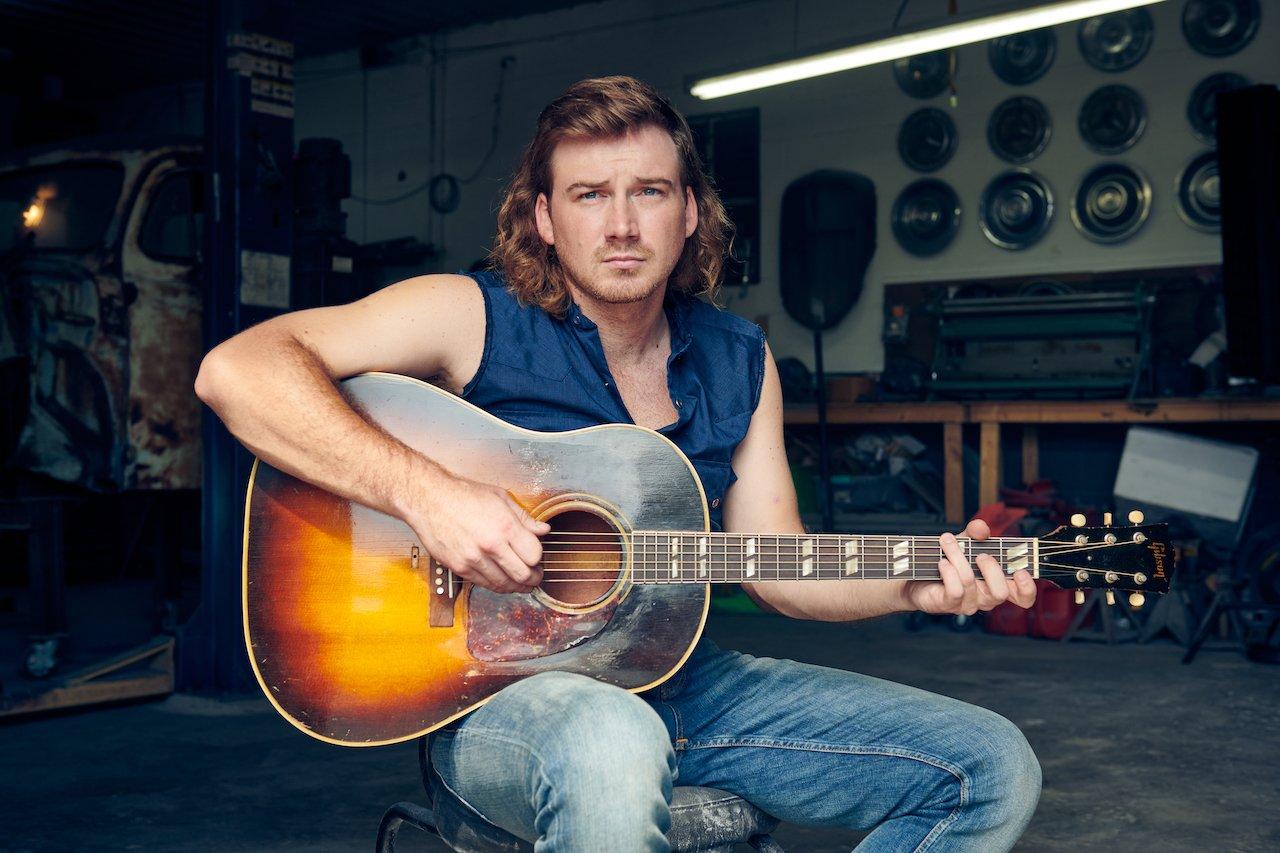
Morgan Wallen
Photo: John Shearer
news
Morgan Wallen On Crafting His Chart-Topping, 30-Song Project ‘Dangerous: The Double Album’
Fast-rising country star Morgan Wallen spoke with GRAMMY.com about his record-breaking 'Dangerous: The Double Album' and the challenges of a nearly gig-free year
A single party almost cost Morgan Wallen the gig of a lifetime. Last October, the fast-rising country star, known for his '90s-era mullet, sleeveless plaid shirts and down-home vernacular, was disinvited from his "Saturday Night Live" debut after he attended a maskless party during the COVID-19 pandemic. (Wallen released an apology video and made his "SNL" debut in December.)
Wallen has four consecutive No. 1 hits on country radio under his belt: “Up Down" feat. Florida Georgia Line, “Whiskey Glasses,” “Chasin’ You” and “More Than My Hometown.” With such a controversy in the rearview, some artists might play it safe with their second album, fearing the dreaded “sophomore slump.” However, on Jan. 8, Wallen released his newest project, the 30-song Dangerous: The Double Album, on which he proved he has no problem being a rebel—personally and professionally. And it’s paying off, big time.
<style>.embed-container { position: relative; padding-bottom: 56.25%; height: 0; overflow: hidden; max-width: 100%; } .embed-container iframe, .embed-container object, .embed-container embed { position: absolute; top: 0; left: 0; width: 100%; height: 100%; }</style><div class='embed-container'><iframe src='https://www.youtube.com/embed/OqaznqwGkrs' frameborder='0' allowfullscreen></iframe></div>
Last week (Jan. 17), Dangerous debuted atop the Billboard 200 albums chart. The project earned the largest streaming week ever for a country album, according to Billboard, besting Luke Combs’ record set by the expanded version of What You See Is What You Get, in October 2020. Dangerous remains at No. 1 this week, the "first country album to spend two weeks in a row at No. 1 since Chris Stapleton’s Traveller in 2015," Billboard reports.
In November, Wallen capped off 2020 by accepting the Country Music Association’s New Artist Of The Year award, which followed last summer’s soft-rock-tinged hit, “7 Summers.” The track debuted atop Billboard’s Hot Country Songs chart and shattered streaming records on Apple Music and Spotify.
Dangerous: The Double Album balances Wallen’s rowdy ways with more heartfelt, romantic material. Through countless odes to partying and endless rounds of liquid courage, he chronicles a journey of seeking love, losing love and growing up in the piercing heat of a global spotlight. Wallen steeped the album in an amalgam of country and swaggering arena rock, accented by banjos, mandolins, steel guitar and programmed beats.
The morning after debuting songs from Dangerous during his socially distanced debut headlining show at Nashville’s Ryman Auditorium, Wallen spoke with GRAMMY.com about the challenges of a nearly gig-free year, the reason why he made a double album and the Jason Isbell song that most resonates with him.
This interview has been edited and condensed for clarity.
<style>.embed-container { position: relative; padding-bottom: 56.25%; height: 0; overflow: hidden; max-width: 100%; } .embed-container iframe, .embed-container object, .embed-container embed { position: absolute; top: 0; left: 0; width: 100%; height: 100%; }</style><div class='embed-container'><iframe src='https://www.youtube.com/embed/MS82JAkBkDY' frameborder='0' allowfullscreen></iframe></div>
The Ryman Auditorium concert marked your debut headlining performance at country music’s Mother Church, but also your first full concert in about ten months.
I was honestly nervous because we hadn’t played in so long, and with all new songs and everything. But it felt even better than I expected. I had intentions to talk more during the show, but the first time I started talking, I almost started bawling my eyes out, so I decided not to talk much after that. I miss [playing shows] so bad, so it was emotional for me to be up there. Seeing those people and the energy they gave out is something I have missed tremendously.
When did you first visit the Ryman Auditorium?
My first time was playing a show with Craig Wiseman to support Second Harvest Food Bank. So the first time I ever went through the doors, I got to sing a song, which is pretty cool.
If I Know Me, your debut album, is certified platinum and reached No. 1 on Billboard’s Top Country Albums chart. Still, putting out a 30-song album for your second major label project is a bold move.
With the time we are in, I was given a lot more time to work on it because I wasn’t on the road. The idea of making a double album started as a joke between my manager [Big Loud CEO Seth England] and me. We already had about 20 songs done at the beginning of 2020, but then everything happened the way it did, and I had time to add more. Some of those turned out to be my favorites on the album. We thought, “Why not?”
People need entertainment to get their minds off of what is going on, and it’s a hard time for everyone. Music is one of the only ways to get my mind off of it, so I figured most people felt the same way. We pretty much emptied the tank on this one and decided to go all-out on it.
Morgan Wallen performs at the Ryman Auditorium | Photo: John Shearer/Getty Images for Ryman Auditorium
Why “Dangerous” as the title track?
Ernest [Keith Smith] and I wrote that after I got into a little trouble, but we put a love story in it to make it more relatable. Honestly, it’s more of a letter to myself than it is a love story. I felt like it was a lesson I learned, and the overall premise of the message resonated with me, so I felt we should go with it as a title.
How have you handled writing songs via Zoom during the pandemic?
I did a couple of Zoom writes, then we figured out we could get mobile testing done, so we all made sure we were good before we would write in the same room. I wrote with the same group of guys a lot, so we had a pretty good trust with each other. Zoom writing is not something I enjoy doing at all. It’s hard for me to feel the same energy or vibe. I think I wrote two songs on Zoom. One was a failure, and we didn’t finish it. The other song I wrote with Thomas Rhett and was not a failure [laughs]. There are certain things you can’t replace and for me, writing in person is one of them.
<style>.embed-container { position: relative; padding-bottom: 56.25%; height: 0; overflow: hidden; max-width: 100%; } .embed-container iframe, .embed-container object, .embed-container embed { position: absolute; top: 0; left: 0; width: 100%; height: 100%; }</style><div class='embed-container'><iframe src='https://www.youtube.com/embed/pH8mu6-FvE0' frameborder='0' allowfullscreen></iframe></div>
You have performed Jason Isbell’s “Cover Me Up” live, and you included a version of it for this project. What is it about that song that speaks to you?
That was the first Jason Isbell song I heard. I think that’s a pretty solid introduction to anyone, and then I discovered the rest of his catalog. The song’s arrangement is beautiful. It reminded me of my mom and dad. My dad used to be pretty wild and a little bit reckless, kind of not caring about anything. But he loved my mom, and he chose her over all that, so it reminded me of their story.
My guitar player and I would warm up by playing [“Cover Me Up”], and people would stop by and say, “Dang, what is that?” I was kind of disappointed that people in my lane, my part of life, didn’t know that song, and I thought they should. I figured the best way for me to spread that song was to do my own version.
Doing a cover like that is risky. You run the risk of the original artist not appreciating it. It took me a while to decide to do it, but my team and everyone made me feel comfortable. I appreciate Jason giving me the support he has on it.
You’ve had some ups and downs over the past year. Did your dad have any encouragement or advice for you during that time?
He felt for me because he had been in kind of a similar situation, without having to learn it in the spotlight. He just let me know he was there for me and that I would get through it. Just a lot of encouragement for me during that time, which meant more to me than anything he could have done.
Before the pandemic and this new album’s success, your star was already skyrocketing. You were set to open shows for Luke Bryan in 2020. But as you hopefully return to touring in 2021, how will that look for you?
I will still go out and open for my buddy Luke. We are honoring those dates, and we have plans to start doing our own arena shows as soon as we can get back to touring.
<style>.embed-container { position: relative; padding-bottom: 56.25%; height: 0; overflow: hidden; max-width: 100%; } .embed-container iframe, .embed-container object, .embed-container embed { position: absolute; top: 0; left: 0; width: 100%; height: 100%; }</style><div class='embed-container'><iframe src='https://www.youtube.com/embed/pLl2AvQUe5g' frameborder='0' allowfullscreen></iframe></div>
“Livin’ The Dream” starts with the gut-punch line, “Mama don't pray for my success anymore/But mama still prays for me.” The song addresses the stressors that often come with fame—the loneliness, the alcohol, the grueling schedules. Did you have any second thoughts about including it on the album?
I definitely had some second thoughts about it. I didn’t want people to worry about me. I didn’t want people to think it was a cry for help. We wrote that song a good while ago before I even knew the real meaning behind it. It was almost a prophetic song, in a way. You don’t always wake up pumped to be in the spotlight, but you always have to be “on.” That part can get a little tiring.
I don’t feel that way most of the time. Most of the time, I feel blessed to do something I love, but it’s not all fun and games. We wanted to write it from an honest perspective, and that’s one of the most real lyrics I’ve been part of creating.
There are several references to hometowns and small towns throughout Dangerous. You went to Gibbs High School, where Kenny Chesney attended. Did knowing that one of country music’s most significant artists came from your area give you confidence that you could try to pursue music, too?
I was so caught up in baseball in high school. I still sang and stuff, but I was supposed to play in college. Once baseball got taken away [due to an injury], I started writing my own songs. Between my family’s encouragement and knowing that someone from a little high school like I’m from could do it, that played a part in my lack of doubt.
I’ve never really let negative thoughts get in the way. I never let the idea of failure enter my mind, and I still don’t. I think that’s important for anything you want to achieve.
